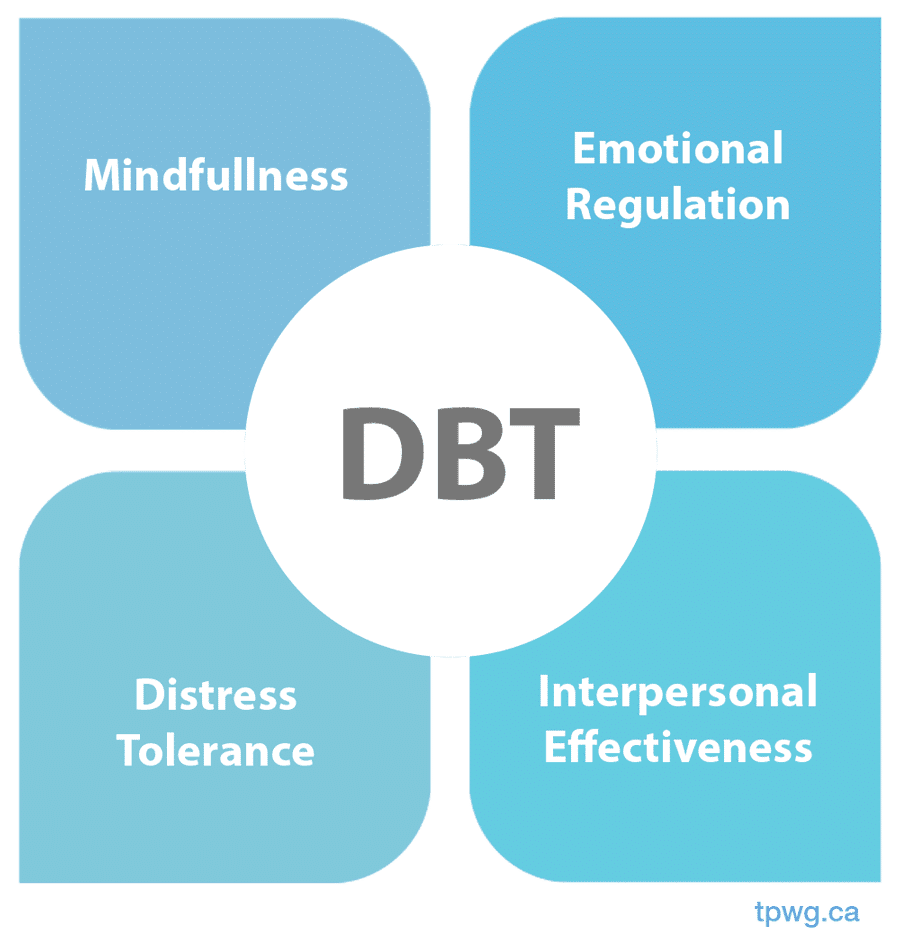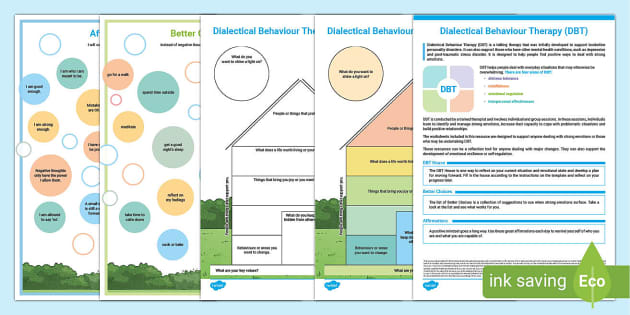Utilizing the Power of Dialectical Behavior Treatment (DBT) Providers for Lasting Emotional Balance and Improved Relationships
In a world where emotional well-being and maintaining healthy partnerships are vital parts of a meeting life, the use of Dialectical Behavior Treatment (DBT) services has actually become a sign of expect lots of people. The evidence-based and structured strategy of DBT uses a path in the direction of lasting emotional equilibrium and improved communications with others. By focusing in on core concepts, individuals can establish essential abilities for managing feelings, boosting interpersonal effectiveness, and fostering mindfulness. The true power of DBT lies not just in recognizing these principles but in the functional application of methods in everyday life. As we browse the intricacies of human feelings and partnerships, taking advantage of the capacity of DBT solutions ends up being a transformative trip worth checking out better.

Understanding the Core Concepts of DBT
Dialectical Actions Treatment (DBT) is established upon a set of core concepts that underpin its restorative strategy to advertising emotional balance and mental well-being. One of the essential concepts of DBT is dialectics, which highlights the synthesis of apparently contrary concepts to arrive at a more balanced point of view. This includes identifying and accepting the oppositions and tensions within oneself, causing a higher feeling of harmony and understanding. Mindfulness is an additional core principle of DBT, focusing on being completely present in the minute without judgment. By growing mindfulness, individuals can establish an increased awareness of their behaviors, thoughts, and feelings, enabling greater self-regulation and psychological control.

Recognition is likewise integral to DBT, highlighting the value of accepting and recognizing one's experiences and feelings as valid. By integrating these core concepts into treatment, DBT uses a extensive and reliable approach to advertising emotional health and psychological durability.
Developing Psychological Policy Abilities
Psychological regulation abilities are crucial components of Dialectical Behavior modification (DBT) that enable individuals to efficiently manage their emotions and navigate challenging situations with resilience. These skills incorporate the capacity to identify and understand one's emotions, endure distress, control extreme sensations, and act in accordance with personal values also in the face of emotional turmoil. Establishing emotional law abilities involves learning mindfulness strategies to stay existing in the moment, understanding the triggers that result in emotional dysregulation, and executing coping methods to regulate psychological actions.

Enhancing Interpersonal Effectiveness
Improving communication skills and cultivating purposeful connections with others are important aspects of developing interpersonal efficiency within the framework of Dialectical Actions Treatment (DBT) DBT teaches people exactly how to communicate properly, browse interpersonal obstacles, and develop approaches for fixing disputes in a positive way.
One secret component of enhancing interpersonal performance in DBT is learning to recognize and manage feelings in social interactions. DBT London. By increasing psychological understanding, people can reply to others in a much more empathetic and understanding method. Furthermore, DBT stresses the relevance of practicing mindfulness in interpersonal partnerships, motivating people to be present in their interactions and fully engage with others
Exercising Mindfulness Techniques
Establishing a regular mindfulness practice is essential for individuals undertaking Dialectical Habits Therapy (DBT) to grow psychological regulation and boost their interpersonal effectiveness. Mindfulness techniques, a core element of DBT, include taking note of the present minute without judgment. With mindfulness, people can come to be much more familiar with their ideas, emotions, and physical feelings, allowing them to reply to situations with better quality and control.
One key mindfulness technique made use of More hints in DBT is mindfulness meditation. This technique entails concentrating on the breath or a specific object while allowing and recognizing go of any type of disruptive ideas. By incorporating mindfulness meditation into their day-to-day routine, people can train their minds to remain existing and minimize reactivity to stress factors.
One more crucial aspect of practicing mindfulness in DBT is the principle of radical acceptance. Radical acceptance entails fully embracing reality as it is, even when it is uncomfortable or difficult. By accepting the here and now minute without judgment, individuals can minimize their suffering and make area for positive modification.
Using DBT Methods in Every Day Life
Structure upon the structure of mindfulness techniques such as meditation and radical approval, people can integrate DBT methods into their every day lives to foster emotional equilibrium and improve their social skills. One efficient DBT technique is the usage of dialectics, which motivates people to find the middle ground between two opposing ideas or feelings. By exercising dialectics in everyday interactions, individuals can discover to validate their own sensations while additionally taking into consideration the point of views of others. An additional important DBT ability for life is distress resistance, which involves finding out just how to handle intense feelings without resorting to unsafe behaviors. This can be attained via methods such as self-soothing tasks, distraction strategies, or improving the moment. In addition, interpersonal efficiency skills taught in DBT can see page assist individuals interact their needs assertively, set borders, and preserve healthy and balanced partnerships. By consistently applying these DBT approaches in life, people can experience lasting emotional equilibrium and boost their total wellness.
Verdict

Psychological guideline skills are vital parts of Dialectical Actions Therapy (DBT) that allow people to properly handle their emotions and navigate tough situations with resilience.Through DBT services, people can grow a deeper awareness of their emotions, identify patterns of actions that add to emotional distress, and acquire useful tools to manage their sensations constructively.Establishing a view website constant mindfulness method is essential for people undertaking Dialectical Habits Treatment (DBT) to cultivate psychological regulation and improve their social performance.Structure upon the foundation of mindfulness techniques such as meditation and extreme approval, people can incorporate DBT methods right into their daily lives to cultivate emotional balance and boost their interpersonal abilities. By understanding the core principles of DBT, establishing psychological regulation abilities, boosting social efficiency, practicing mindfulness methods, and applying DBT approaches in daily life, people can experience considerable renovations in their overall wellness and partnerships.